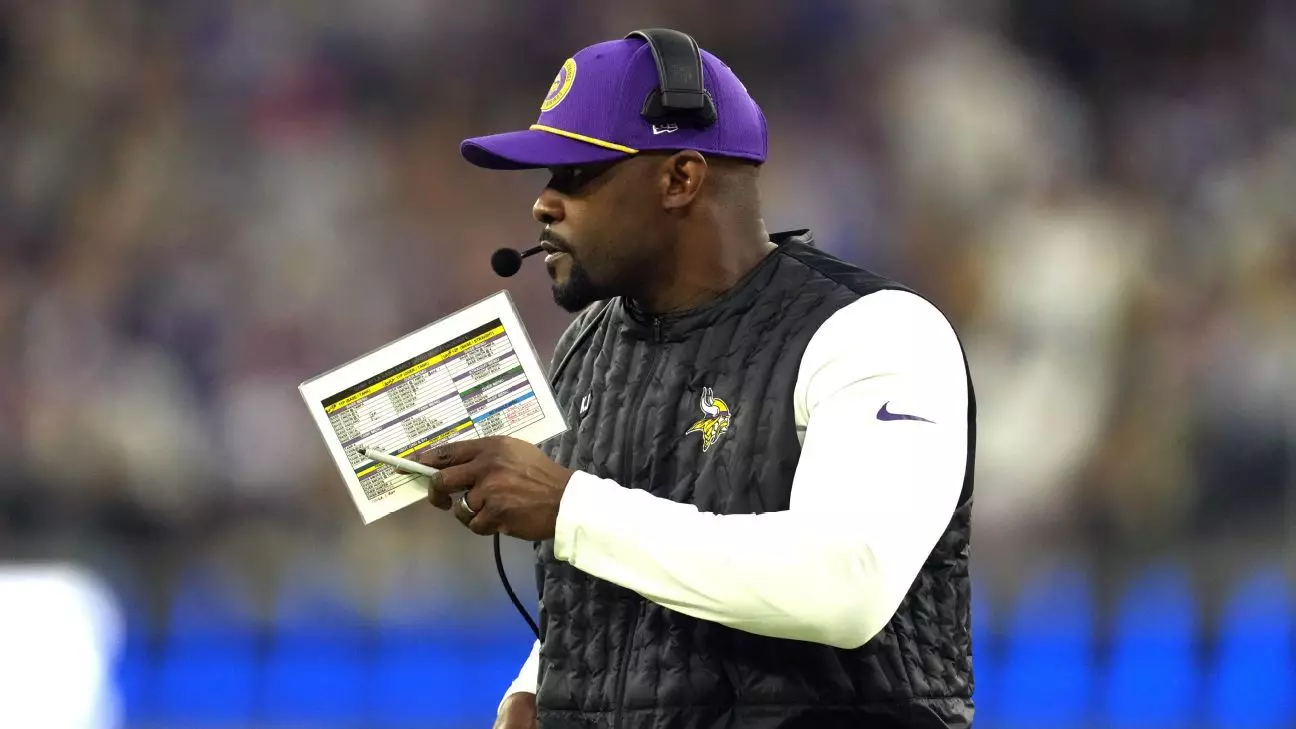The National Football League (NFL), long celebrated as America’s premier sports league, now finds itself under intense scrutiny and legal pressure, revealing uncomfortable truths about systemic discrimination and the flawed mechanisms that shield it. The recent decision by the 2nd U.S. Circuit Court of Appeals marks a pivotal moment—challenging the league’s self-proclaimed impartiality and potentially transforming the landscape for workplace justice within professional sports. At its core, this legal victory underscores a fundamental ethical truth: justice cannot be served when arbitration processes are biased or manipulated to protect entrenched power structures.
The case of Brian Flores, a motivated and accomplished Black coach daring to speak out against racial injustice, symbolizes more than individual grievances. It is a mirror held up to an institution that claims to prioritize merit and competition but, in practice, often perpetuates exclusion and inequality. The appeals court’s rejection of the NFL’s arbitration model exposes how those mechanisms — ostensibly designed to resolve disputes fairly — can be weaponized to silence dissent and preserve the status quo. This decision signals that the league can no longer hide behind the façade of arbitration when doing so undermines fundamental principles of justice and transparency.
Revealing the Flaws in the NFL’s Arbitration System
The NFL’s arbitration clause, as scrutinized by the courts, is fundamentally flawed because it concentrates power in the hands of a single individual: the league commissioner, Roger Goodell. Such a setup offers no genuine independent review or neutral arbiter to hold powerful entities accountable. Instead, it transforms arbitration into a consent-based process that effectively functions as an extension of league authority, rather than an impartial dispute resolution mechanism.
This revelation is crucial because it exposes how systemic bias can sneak into ostensibly neutral processes. When a league’s boss, who also governs disciplinary actions and personnel decisions, acts as both judge and jury, fairness becomes compromised. The court’s ruling emphasizes that arbitration in such circumstances does not shield parties with enforceable protections but rather perpetuates a “rubber-stamp” scenario where grievances about discrimination are dismissed or buried. For Flores and other marginalized voices, this has often meant a life-altering silence, reinforcing a system designed to maintain racial hierarchies rather than dismantle them.
The court’s critique resonates across broader labor rights issues. It challenges the very foundation of how corporate and league disputes are resolved in the United States, calling into question whether arbitration should be a tool for genuine justice or a corporate shield. The ruling underscores the critical need for independent, transparent dispute resolution avenues—ones that do not serve as rubber stamps for organizational interests.
Implications for the NFL and Society at Large
This legal setback for the NFL signifies more than just a win for Flores; it shines a spotlight on the league’s broader complicity in systemic racism. Despite claims of diversity and initiatives aimed at minority inclusion, the underrepresentation of Black coaches and executives reveals a stark disconnect between rhetoric and reality. The fact that only a tiny fraction of coaching positions are held by Black individuals in a league where a majority of players are Black underscores the persistent injustice at play.
The NFL’s response—announcing plans to seek further review—reflects its resistance to change and acknowledgment of systemic flaws. However, this resistance only reinforces the urgent need for external oversight—be it legal, governmental, or societal—to hold the league accountable. The court’s decision could act as a catalyst for reform that extends beyond football, influencing workplace policies across industries that grapple with similar challenges of racial discrimination and justice.
Flores’s courageous stance, despite risking his career and personal well-being, embodies the longer fight for equity and fairness. His struggle highlights how systemic barriers—built into institutional frameworks—must be dismantled if we are to create meaningful progress. His case becomes a rallying cry for anyone who believes that true sporting integrity can only be achieved through honesty, transparency, and a genuine commitment to diversity and inclusion.
In the end, this legal battle throws into sharp focus a critical question: can billion-dollar leagues like the NFL continue to dismiss calls for fairness and integrity, or will they finally be compelled to confront their own shortcomings? The answer will shape not only the future of sports but also the ongoing fight against institutional discrimination in American society.


Leave a Reply